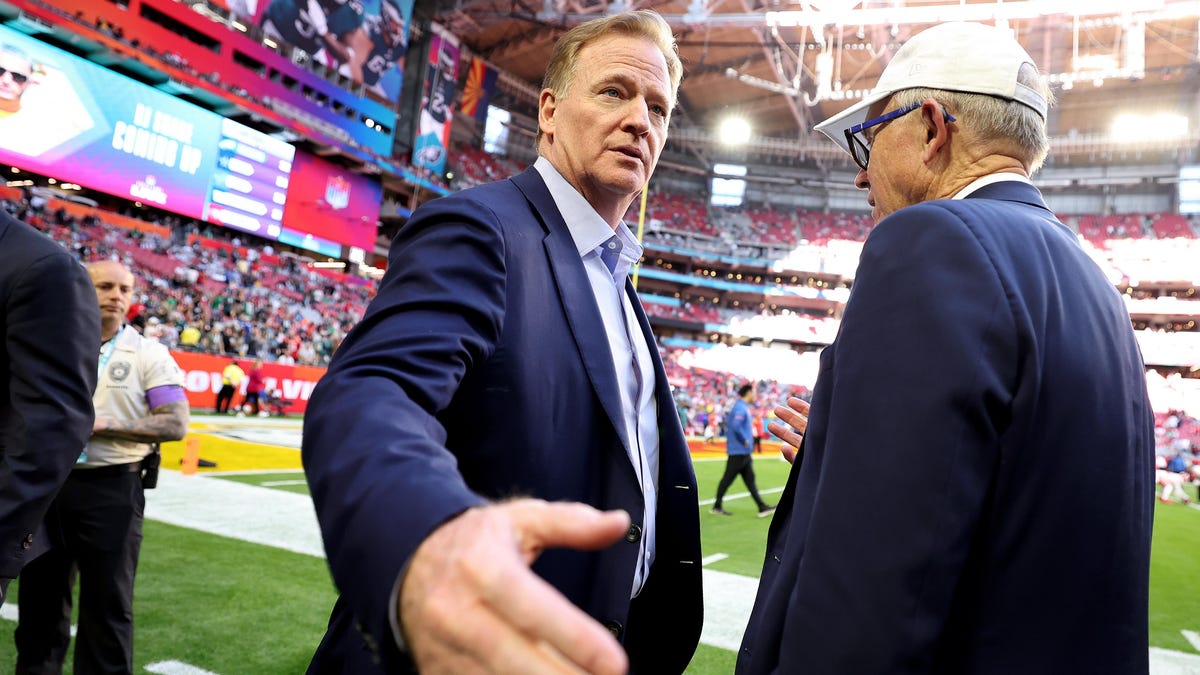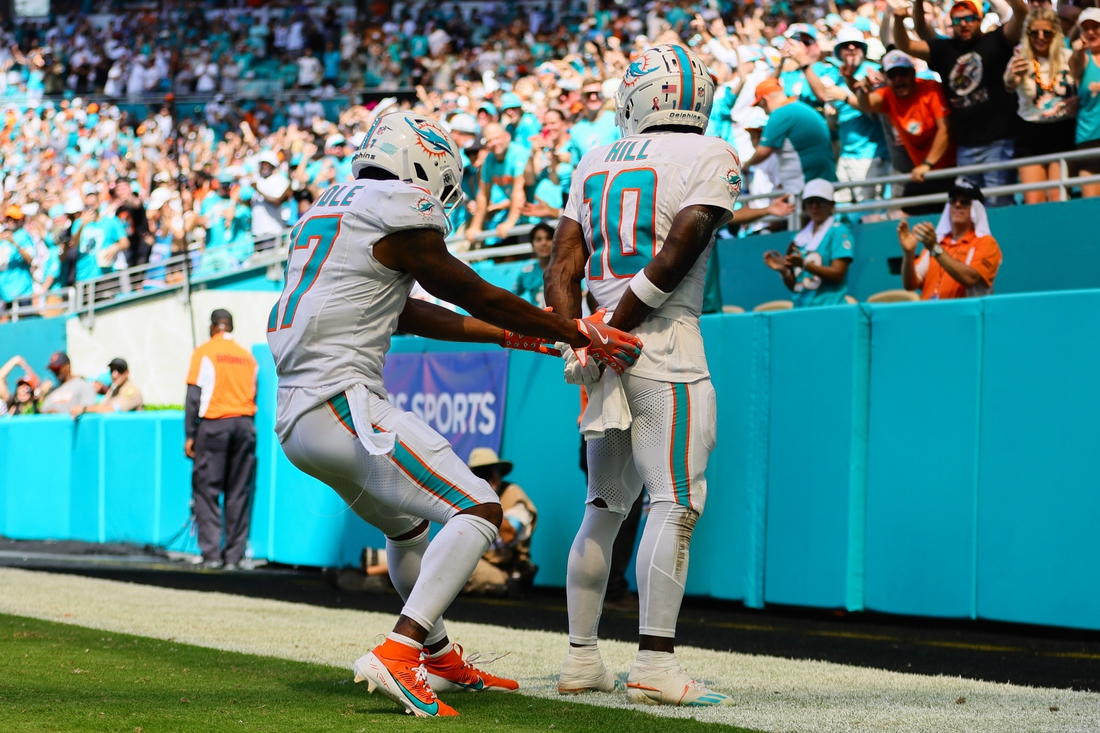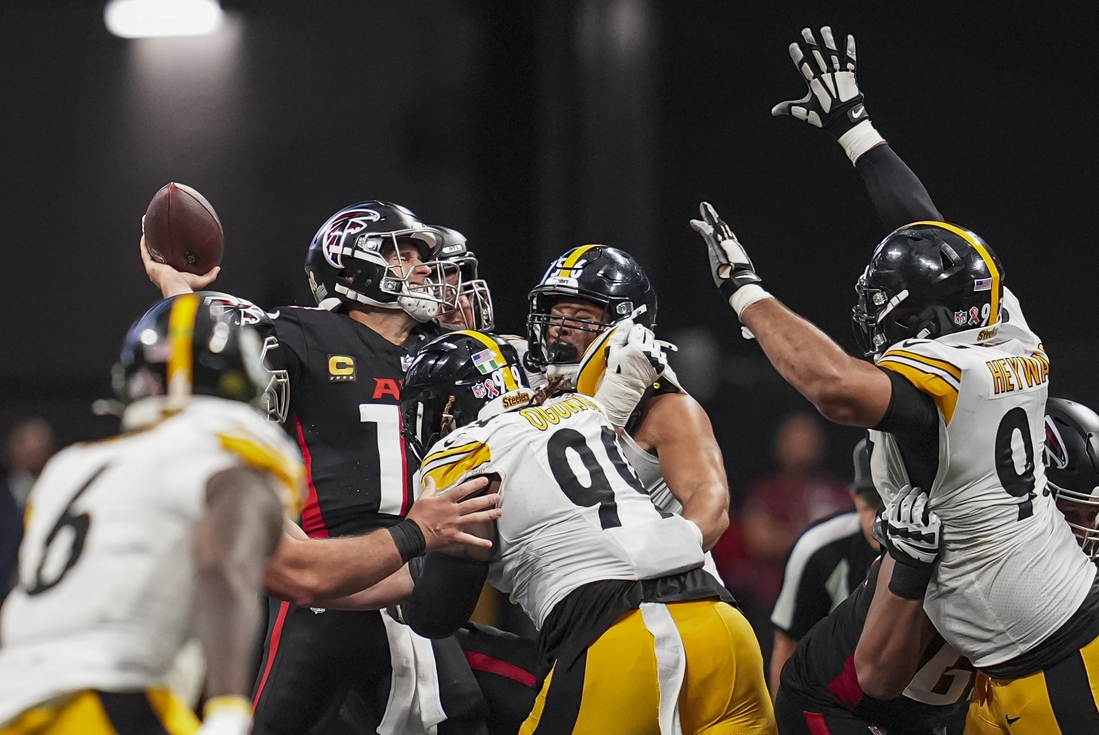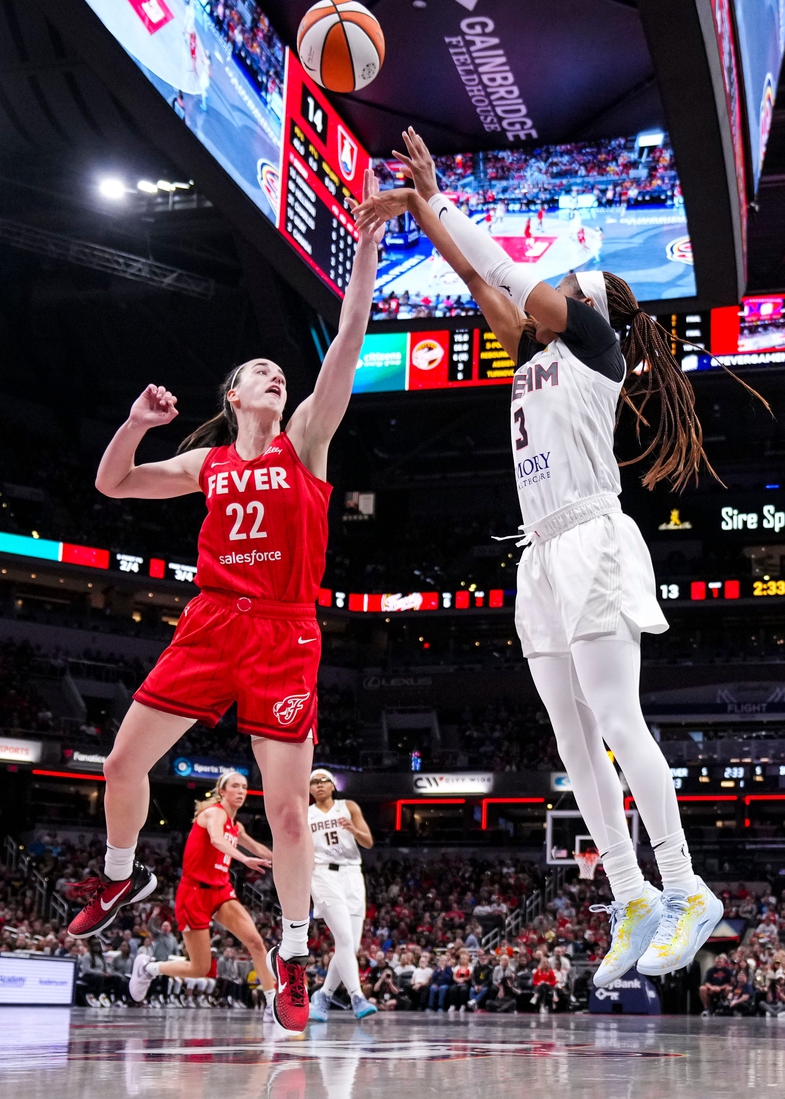What happens every time an NFL quarterback resets the QB market? A relatively crap quarterback gets overpaid. The reason Daniel Jones netted a four-year $160 million deal after one good season, instead of getting franchise tagged like he should’ve been, is Joe Burrow got enough money that, by comparison, Jones’ contract was understandable.
This is kind of happening with wide receivers as Justin Jefferson is expected to get $30 million annually. Cincinnati Bengals receiver Ja’Marr Chase said he’d like to wait until his former LSU teammate gets a bag to negotiate his next deal, which makes sense, because that’s how business in America works. See what your peers are worth and gauge your value accordingly.
Well, if the best players at their positions aren’t getting their full due, how is the market supposed to reset for them? The talking point about the franchise tag is the NFLPA agreed to it in order to gain allowances in other areas, specifically for players who aren’t in the top percentile of the NFL.
Yet by delaying or flat out avoiding paying the best safeties, cornerbacks, offensive linemen, running backs, etc., there are fewer examples to use as leverage during negotiations. Take Antoine Winfield Jr. He was All-Pro in 2023 after amassing 122 total tackles, six sacks, six tackles for loss, three interceptions and a league-leading six forced fumbles.
The Bucs tagged him because, per his playing history and age, he was theoretically in line to reset the bar for safeties. If he’s paid like he’s supposed to be paid, the rest of the safeties in the NFL can say, “Hey, I’m no Antoine Winfield Jr., but I provide 75 percent of the production he does, so I deserve 75 percent of what he’s making and 75 percent of the years on his deal.”
Four of the nine players tagged this week were cornerbacks and safeties. That’s four missed opportunities to boost the market for the next crop of free agents.
The franchise tag also enables front offices to scoff at players who ask for multi-year contracts, which is dangerous, as groupthink in the NFL often rapidly snowballs into collusion. It’s difficult to use a one-year rental salary as a point of reference because the only reason those players are making that much is because it’s a one-year, risk-free deal that in no way reflects the actual market.
All these general managers act like they’re Albert Einstein because the league tilted the field in their favor. Let’s see how they handle guaranteed contracts and a little accountability like those doofuses over in MLB and the NBA.
The NFL salary cap went up $30 million this offseason and yet players are still getting cut left and right so owners can get off of multi-year deals. Of the 25 players who scored the most TDs in 2023, 13 were running backs. Christian McCaffrey is objectively one of the best players in the game, full stop.
Where would you rank Danny Dimes or Kirk Cousins? Salary caps and tides are not one in the same, and it would surprise no one if the extra Monopoly money goes straight to receivers, edge rushers and quarterbacks before it raises salaries for the other groups.
The NFL is going to hold onto the franchise tag as long as possible because it prevents “less important” position groups from inking the kinds of exorbitant contracts needed to raise the bar for their peers. So when someone hits you with a “Well, actually, the franchise tag was agreed upon in the CBA …” point their lips in the direction of Roger Goodell’s ass.







